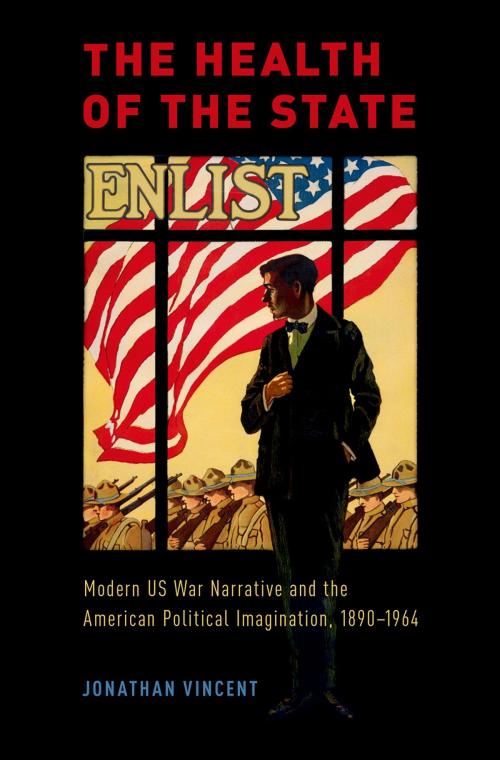The Health of the State
Modern US War Narrative and the American Political Imagination, 1890-1964
Fiction & Literature, Literary Theory & Criticism, American| Author: | Jonathan Vincent | ISBN: | 9780190650377 |
| Publisher: | Oxford University Press | Publication: | November 21, 2016 |
| Imprint: | Oxford University Press | Language: | English |
| Author: | Jonathan Vincent |
| ISBN: | 9780190650377 |
| Publisher: | Oxford University Press |
| Publication: | November 21, 2016 |
| Imprint: | Oxford University Press |
| Language: | English |
In contrast to most studies of US war writing-those focused on trauma or memory-The Health of the State examines the way writing and thinking about war advanced new, forward-looking orientations toward national belonging, political consent, and the nature and character of state sovereignty across the long US modernism (1890-1964). To tell that story, the book examines three critical phases in which military-themed narratives helped transition American political thought: Civil War remembrance during the Progressive Era, the culture of World War I and the new internationalism, and the memory of World War II as it helped to produce Cold War liberalism. Interlacing close textual reading with issues in cultural history and political theory, Jonathan Vincent considers the literary construction of the "preparedness" and, later, "national security" ethos that were integral affective catalysts to the acculturation of geopolitical realism in foreign policy as well as, domestically, projects of social regulation and control. At front and center throughout is an exploration of the unstable and dynamic nature of the "liberal tradition" in its persistent encounter with both real and imagined threats and the structures of governmental power innovated to meet them-the exceptional, supplementary power of a military hegemony once denounced by Randolph Bourne as "the health of the state." The Health of the State is an interpretive cultural history that explores the role US war writing played in the evolution of American political discourse.
In contrast to most studies of US war writing-those focused on trauma or memory-The Health of the State examines the way writing and thinking about war advanced new, forward-looking orientations toward national belonging, political consent, and the nature and character of state sovereignty across the long US modernism (1890-1964). To tell that story, the book examines three critical phases in which military-themed narratives helped transition American political thought: Civil War remembrance during the Progressive Era, the culture of World War I and the new internationalism, and the memory of World War II as it helped to produce Cold War liberalism. Interlacing close textual reading with issues in cultural history and political theory, Jonathan Vincent considers the literary construction of the "preparedness" and, later, "national security" ethos that were integral affective catalysts to the acculturation of geopolitical realism in foreign policy as well as, domestically, projects of social regulation and control. At front and center throughout is an exploration of the unstable and dynamic nature of the "liberal tradition" in its persistent encounter with both real and imagined threats and the structures of governmental power innovated to meet them-the exceptional, supplementary power of a military hegemony once denounced by Randolph Bourne as "the health of the state." The Health of the State is an interpretive cultural history that explores the role US war writing played in the evolution of American political discourse.















